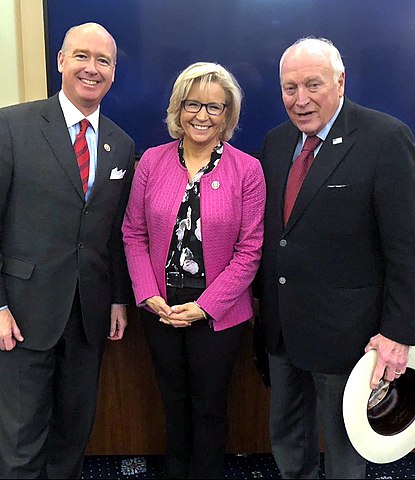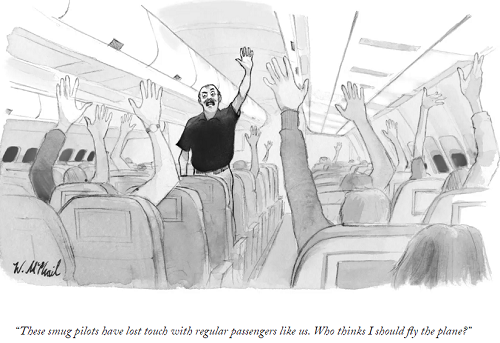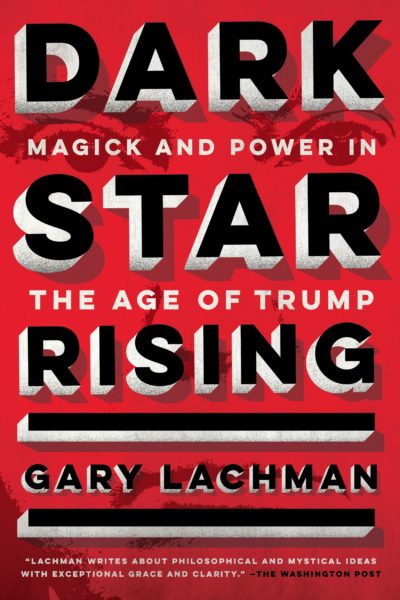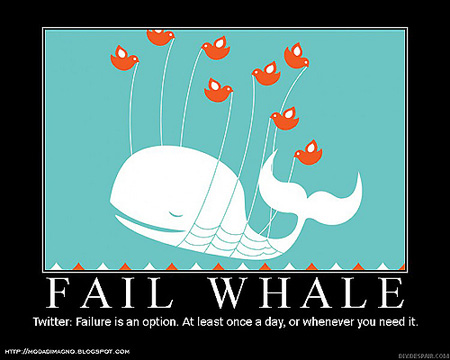Theophilus Chilton indulges in a bit of gloating over Liz Cheney’s Republican primary loss to a Trump-supported challenger:

Liz Cheney with Robert Aderholt and former Vice President Dick Cheney, 14 November, 2018.
Photo from the office of Robert Aderholt via Wikimedia Commons.
The biggest news in domestic American politics in the past week was the absolutely shattering upset of Liz Cheney by Trump-backed challenger Harriet Hageman in Wyoming’s Republican primary for its at-large House seat. I mean, she got smashed worse than a wine aunt who just lost a national championship cat show. In a race that should have been hers for the taking, she was instead defeated by 37 points in one of the worst primary losses suffered by a sitting politician in recent history. If I sound like I’m vicariously gloating, it’s because I am.
Yet, if you were to listen to what the world of Never Trump is saying, you’d think that rather than an ignoble defeat caused by poor political decision-making, Cheney’s self-immolation was a glorious act of martyrdom for the cause of our sacred norms. Seriously, their cope for her loss is that she was too brave and too principled to do anything as tawdry as give the actual voters what they want. Cheney and the rest of Never Trump have seemed kind of bitter, like they’re angry at the voters for not getting with the program. At the same time, the current buzz involves Never Trump trying to gin up enthusiasm for a Cheney 2024 presidential run.
So yeah, there are a ton of Never Trumpers out there running with the line that Liz Cheney will be a serious contender to challenge Trump in the 2024 GOP primaries. “Now,” you might be thinking to yourself, “what on earth makes them think that she has a snowball’s chance in the great perdition of breaking even the low single digits?” And you would be correct. There is, in fact, zero chance that “she’s gonna get him next time!” Yet, why are a bunch of people who are supposedly savvy politicos and insiders trotting out such obvious nonsense?
What’s going on here is that these people are being put through a humiliation ritual, a peculiar kind of loyalty test that the Regime will often impose on its enemies, both potential and actual. These savvy politicos don’t really believe that Liz Cheney has any chance at all — but they have to say so if they want to remain in the good graces of the powers that be. Indeed, once you start paying attention to modern politics and culture, it’s amazing to see just how much of what goes on is basically this kind of loyalty test. Are you a Goodthinker who goes along with the sociocultural programming or are you a Badthinker who questions or rejects elements of the Regime’s playbook?
A few years ago, I wrote about the distinction between narratives and reality. There is a great gulf between what the Left says it believes and what actually is. What you see on the news and on social media has no bearing on reality or vice versa. But the thing to keep in mind is that none of this matters to the Left. They don’t actually want to convince or be convinced. The public face of their ideology and their policy decisions most often are not determined by some Rockwellesque ideal of public debate, but by social force.













